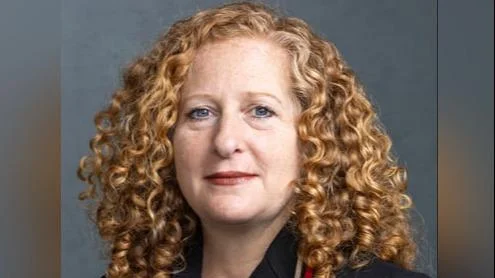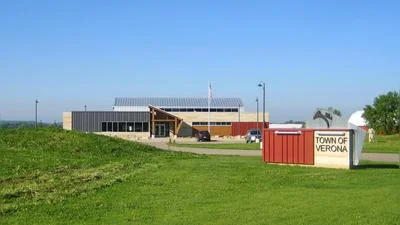Jennifer Mnookin Chancellor | Official website
Jennifer Mnookin Chancellor | Official website
On May 31, National Institutes of Health (NIH) Director Monica Bertagnolli visited the University of Wisconsin–Madison to observe its cutting-edge biomedical research. The visit included meetings with researchers and a public discussion with Chancellor Jennifer L. Mnookin about NIH funding and future health opportunities.
The visit underscored UW–Madison's pioneering work in areas such as theranostics and precision medicine. Zachary Morris, co-director for the Initiative for Theranostics and Particle Therapy, highlighted new approaches in cancer treatment that aim to improve patient outcomes and foster business collaborations.
“The payoff to the state and region is significant,” noted Morris.
UW–Madison has been a leader in biohealth and personalized medicine, contributing significantly to Wisconsin’s designation as a Biohealth Regional Technology and Innovation Hub (Tech Hub). The university is awaiting results from its Phase 2 application, which could bring an additional $75 million in federal grants.
During a "fireside chat" with Chancellor Mnookin, Bertagnolli emphasized the importance of community engagement in biomedical research. “We need to get deeply into the communities that we care about," she said. "With NIH research, everything we need to do should encompass the lab, the clinic, and the communities.”
Bertagnolli also discussed how institutions like UW–Madison can approach research problems collaboratively. “One of the most important things you can do is collaborate and leverage whoever helps you get to your goal," she advised.
The day concluded with a visit to UW’s Institute for Clinical and Translational Research (ICTR), which aims to link basic research with community practice through NIH funding.
NIH funding is crucial for UW’s research initiatives. In 2022-2023, nearly $500 million was awarded through NIH grants, accounting for over half of all federal awards received by the university. This support fuels hundreds of ongoing projects aimed at addressing critical health issues such as Alzheimer’s disease and cardiac function restoration.
“NIH funding is absolutely crucial to our research initiatives,” said Cynthia Czajkowski, interim Vice Chancellor for Research Education.
Among notable projects is a national Alzheimer's study led by UW-Madison's School of Medicine and Public Health, recently awarded $150 million—the largest NIH grant in the school's history. This five-year study aims to advance understanding of Alzheimer's disease through state-of-the-art imaging and biomarkers.
“Our work isn’t done when we make a scientific discovery,” Bertagnolli remarked. “It’s done when we help people live long and productive lives.”






 Alerts Sign-up
Alerts Sign-up